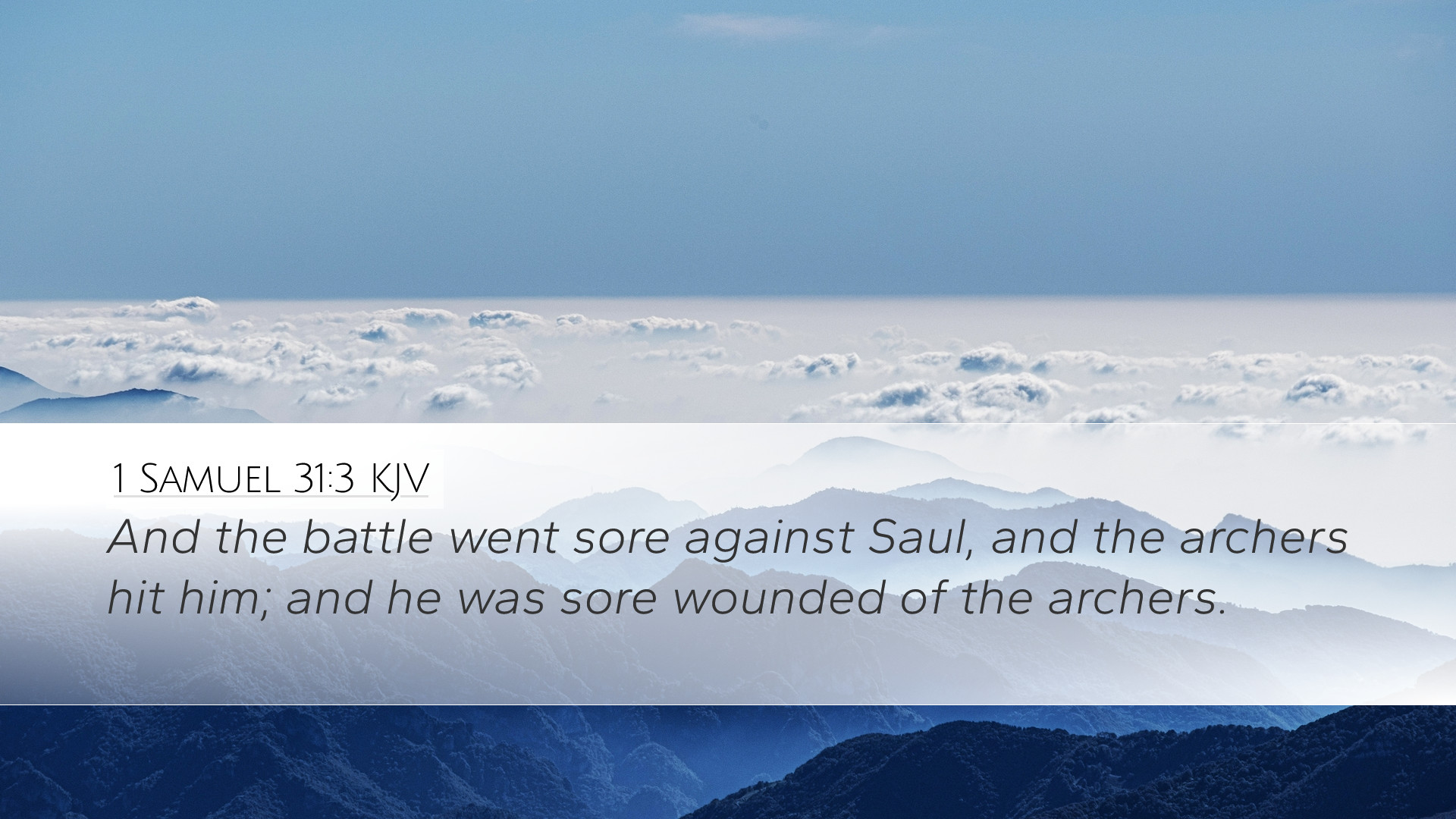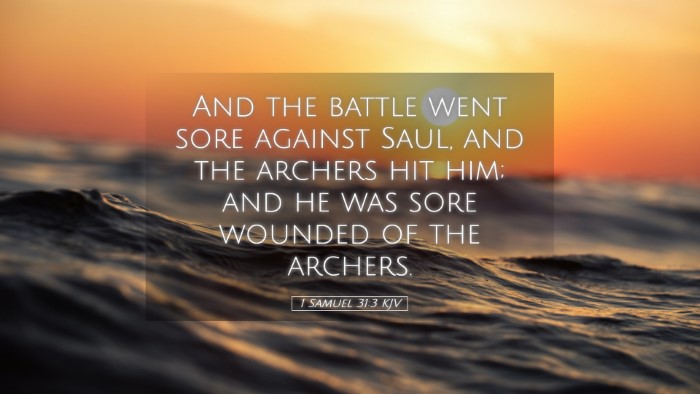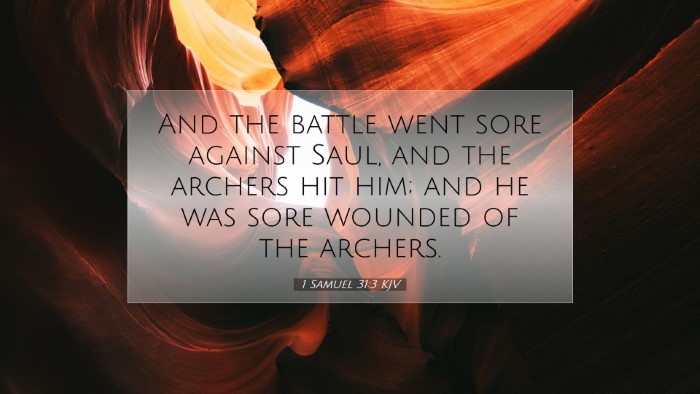Commentary on 1 Samuel 31:3
Verse Text: "The battle went hard against Saul, and the archers hit him; and he was badly wounded by the archers."
In this closing chapter of 1 Samuel, we find ourselves witnessing the somber conclusion of King Saul's tragic narrative—a tale marked by divine disfavor and personal despair. The events encapsulated in 1 Samuel 31:3 are pivotal for understanding Saul's life and the ramifications of his choices as Israel's first king. Various public domain commentaries provide layered insights into this critical verse.
Historical Context
To fully appreciate the weight of this moment, it's essential to examine the historical backdrop. During the reign of Saul, Israel grappled with external threats, primarily from the Philistines. The context here reflects not only Saul's physical battles but also his spiritual decline, as noted by Matthew Henry.
The Severity of Saul's Condition
1. The Physical Battle
As Albert Barnes elaborates, the phrase "the battle went hard against Saul" highlights the urgency and intensity of the ongoing conflict with the Philistines. Saul's armies faced overwhelming odds, and the vulnerability of their leader is a tangible reflection of the kingdom's precarious state.
2. The Archers' Assault
Henry interprets the mention of archers as a symbol of God's judgment. The specifically described wound indicates not merely a physical injury but suggests a deeper, symbolic defeat. Saul's injury signifies the moral and ethical wounds inflicted upon him due to his disobedience to God, evidenced throughout his reign.
Theological Reflections
This verse invites profound theological reflection regarding divine sovereignty and human agency. Adam Clarke posits that Saul’s end is a testament to the consequences of straying from God’s commands. The fact that he fell in battle is more than a military failure; it illustrates the ultimate abandonment by God, who once anointed him with His Spirit.
Consequences of Disobedience
The strife faced by Saul can be seen as the culmination of his persistent disobedience, which Henry stresses throughout his commentary. The Lord withdrew His Spirit from Saul after a series of transgressions, leading to a kingdom fractured and a king devoid of divine guidance. This theme resonates profoundly with pastoral and theological reflection today, as it challenges leaders to remain vigilant in their faithfulness to God’s will.
The Symbolism of the Wound
Moreover, the "badly wounded" detail is laden with symbolism. It not only represents physical pain but also conveys the spiritual desolation consuming Saul. Barnes reminds us that wounds in battle have often been metaphors for the consequences of failing leadership, highlighting that those in positions of authority carry the weight of their choices, impacting not only themselves but the people they lead.
Leadership Lessons
For pastors and leaders, Saul's demise offers vital insights into the nature of godly leadership:
- Accountability: Leaders must recognize their accountability before God. Saul's disregard for divine commands led to his ruin, emphasizing the importance of obedience.
- Spiritual Warfare: The physical battle serves as a representation of spiritual warfare. Leaders should not underestimate the spiritual ramifications of their decisions and the battles faced in the spiritual realm.
- Seek God in Crisis: Saul's attempts to reach a state of peace through his own means rather than seeking divine guidance in his last moments speaks volumes. Leaders are reminded to seek God’s will, especially in times of crisis.
Concluding Thoughts
1 Samuel 31:3 encapsulates a tragic yet instructive episode in Israel's history. The account of Saul’s downfall serves as a reminder of the fragile nature of human authority juxtaposed against divine sovereignty. The reflections from Matthew Henry, Albert Barnes, and Adam Clarke collectively underscore the narrative's multi-faceted implications—historical, theological, and practical for modern-day leaders.
In contemplating Saul's end, pastors, scholars, and students are encouraged to draw lessons about the importance of fidelity to God and the grave consequences that arise from perpetual disobedience. As they delve into this passage, may they find wisdom for their own journeys and insights to relay to their communities.


